
When calculating the cost of hiring a flea exterminator, consider your home size and the infestation extent. This guide will help you figure out what to budget.
For a cleaner, safer, and more relaxing swim


While pools are a great gathering place for friends and family, they also attract unwanted guests like frogs, ducks, snakes, and raccoons—to name a few. It’s not a pleasant experience for the homeowner or animal should this happen, but there are several easy and affordable ways to protect your pool and keep animals out, letting you lounge in peace.

Covering your pool every night is not only the best starting point for keeping animals out, but it also conserves water, cuts down on cleanup, and is overall cleaner and safer. The cost depends on the type of pool cover material and whether they are automated, but the average cost is around $1,760.
Any type of pool fence helps keep animals away. The average cost to build a pool fence is $15 to $25 per linear foot, with wooden and chain link fences on the cheaper end of that scale and wrought iron and glass on the higher end. It’s not foolproof—birds can fly over, and amphibians can sneak through—but it makes your pool area safer and even more stylish. Plants and bushes can also be used as a natural fence, but they won’t stop insects or small creatures.

Like a scarecrow in a field, an inflatable pool toy can ward off animals, especially birds. Large and brightly colored inflatables that resemble other animals, like flamingos or crocodiles, are most effective. Pool floats are affordable and offer the dual benefit of being both fun and practical.
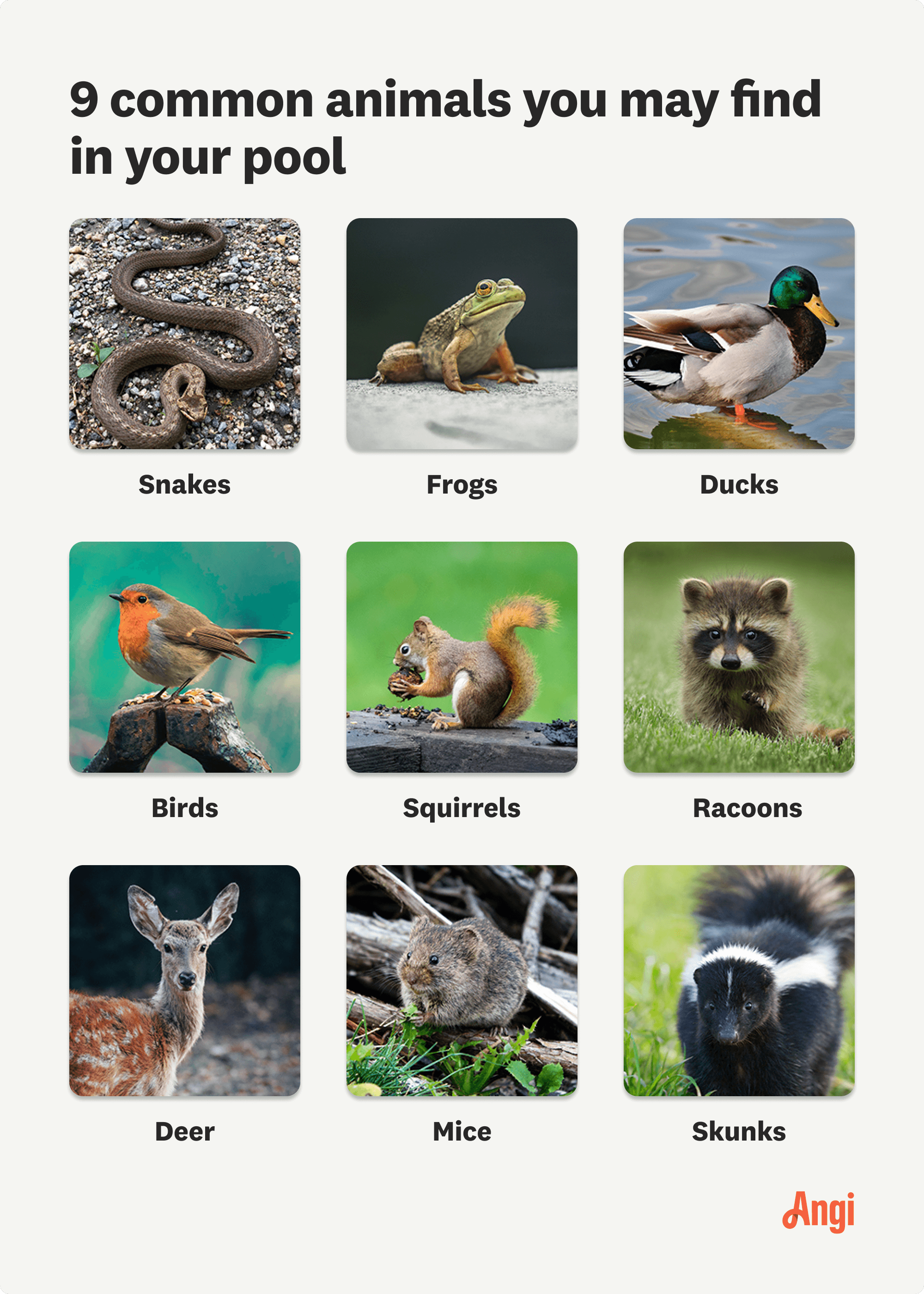
Pool escape ramps are small inflatable mats that float on the surface of a pool and connect to the above-ground edge via a ramp. They form a handy walkway for animals to escape after accidentally getting into the pool. They keep frogs out of your pool exceptionally well but work for other critters, too. Pool ramps are discrete and affordable—usually under $20. Some ramps are specifically designed to help dogs exit a pool, so they are a helpful safety precaution for pet owners.
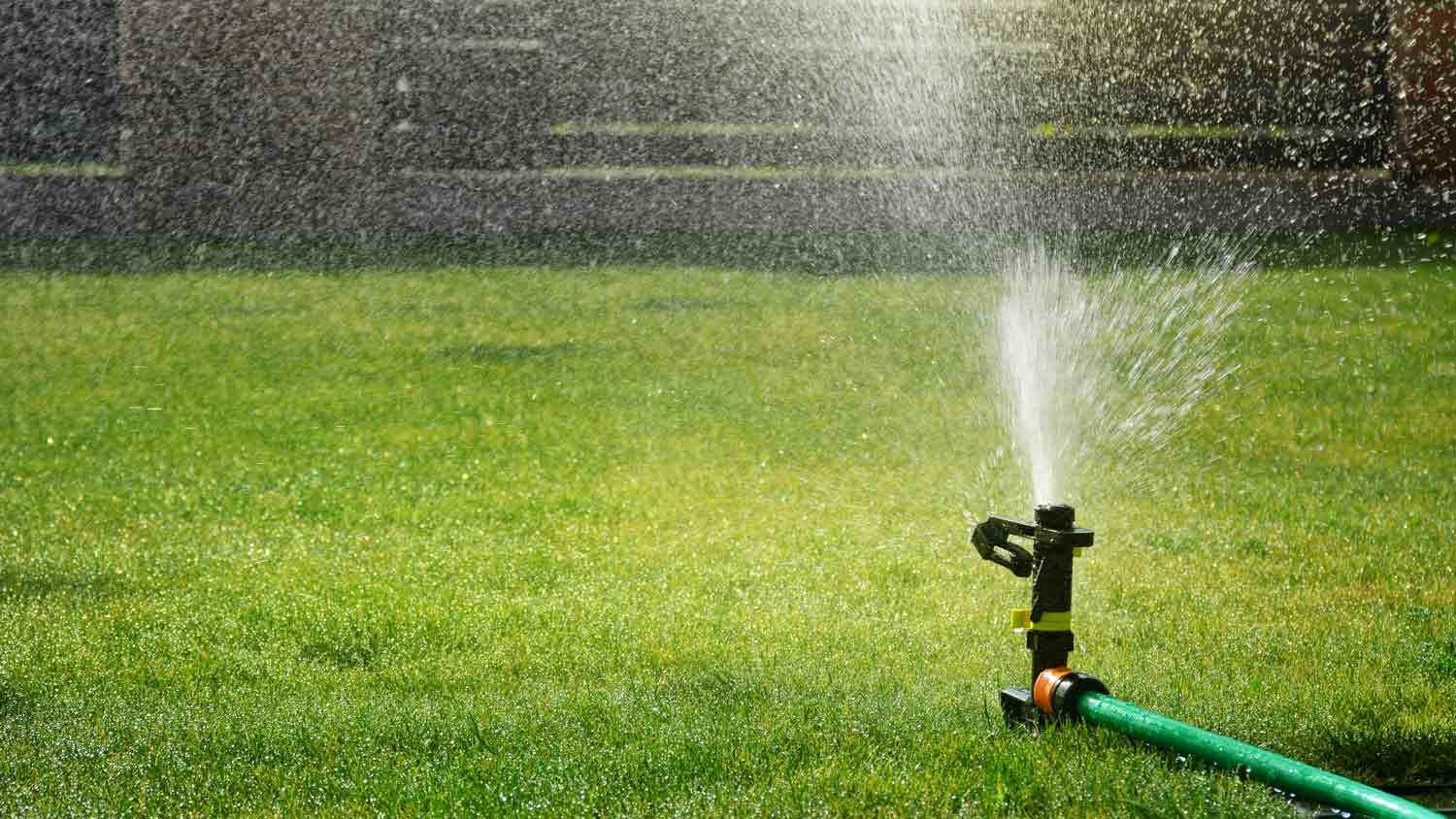
The sudden burst of a sprinkler can startle animals in or around your pool. Luckily, there’s a good chance you already have a sprinkler or sprinkler system to water your yard. Moving them closer to the pool and purchasing a motion-activated sprinkler should help.
Food and drinks attract all sorts of animals, so cleaning up after pool parties and barbecues is essential. This easy tip makes a big difference, and it’s undoubtedly cheaper than pest control costs, which average around $170, should they need to be contacted.
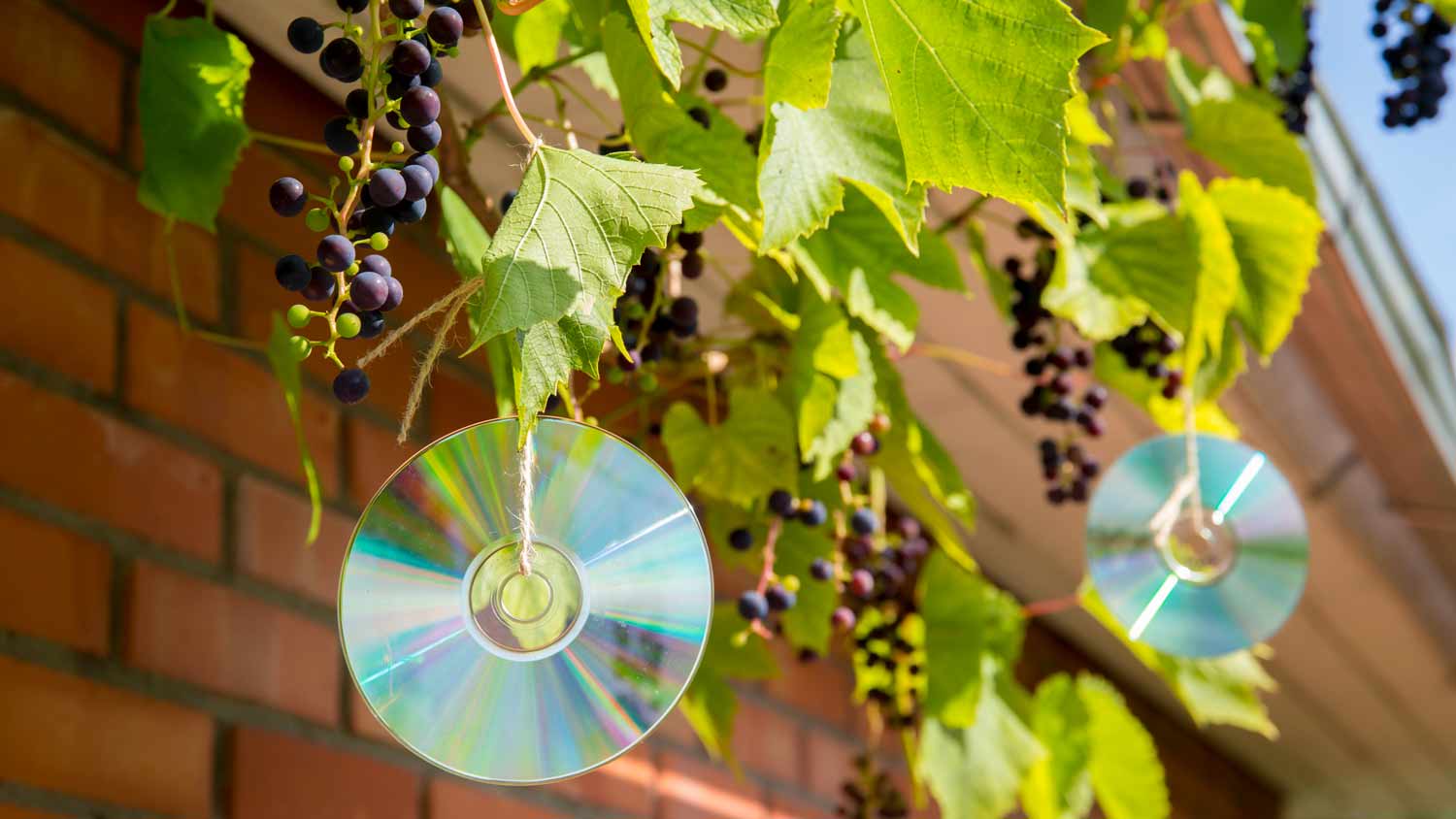
Scare tape—or a homemade version like this clever CD hack—is a reflective material that can be tied to or hung from different areas around a house to scare animals away. It also makes a metallic whooshing sound in the wind, adding an audible deterrent and a visual one. Scare tape is more effective against birds than other animals.
If you have trees near your pool, trimming the branches will help keep animals away. You’re less likely to deal with bird droppings and mammals and rodents that can scurry up trees, like squirrels, raccoons, or opossums.
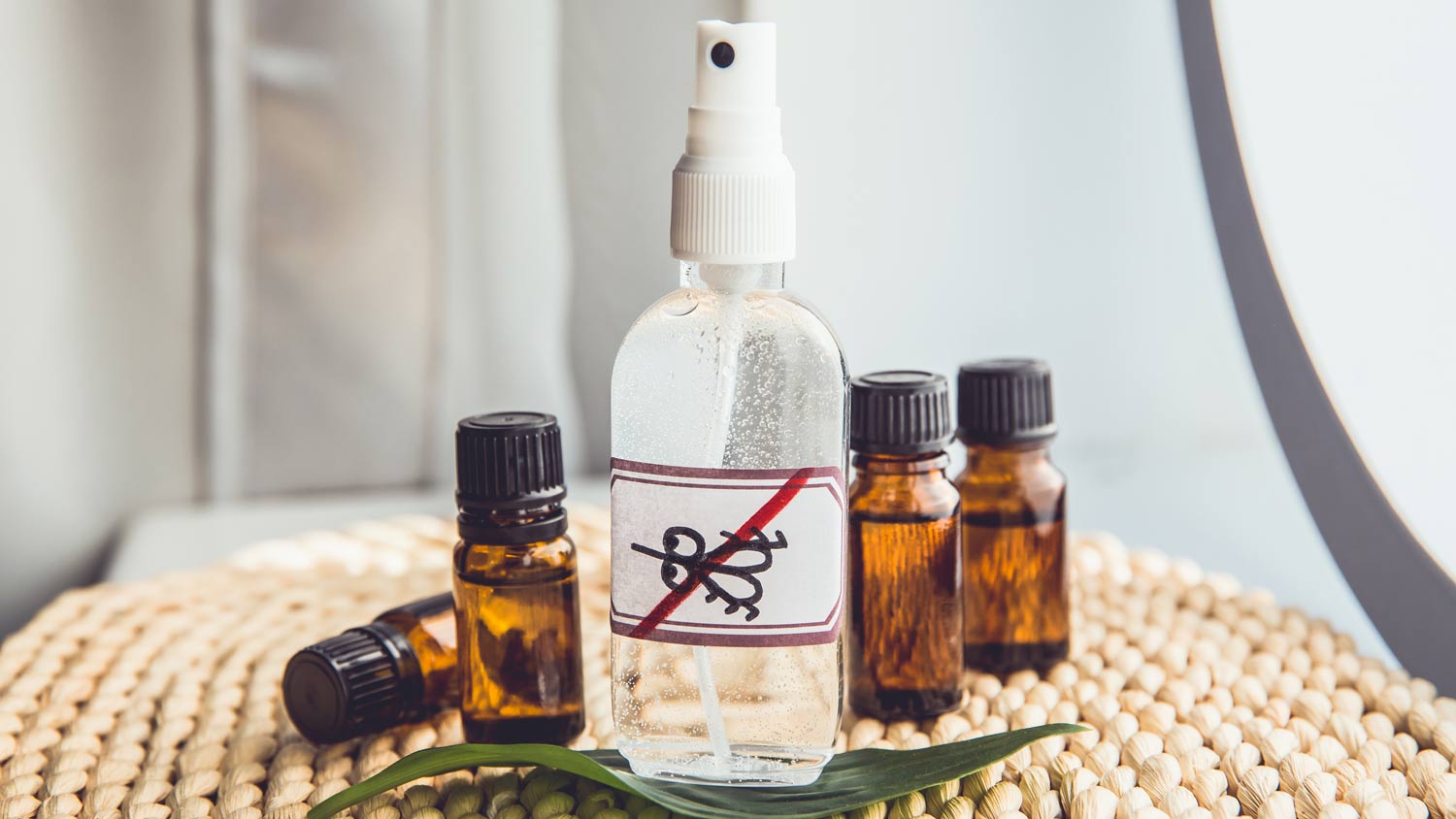
Although some smells attract animals—namely fruit and meat—others drive them away. You can buy a repellent or make one yourself. Peppermint oil deters various animals, including ducks, rats, raccoons, and various insects. Fill a spray bottle with 2 teaspoons of peppermint oil for every cup of water and use it around the pool area. Other products that repel animals include basil, vinegar, and lemon juice. If you continue noticing signs of animals despite using scent repellents, you may have an infestation and need to contact wildlife control in your area.
A variety of devices emit ultrasonic noises to scare off animals without bothering humans. They are usually placed on stakes and solar-powered, so you can set them in your yard and forget about them. It’s possible to find ultrasonic repellers with motion-activated infrared lights for a second layer of defense.
If you use the above deterrents, it’s likely you won’t have many issues keeping animals away from your pool. However, you may want to rely on a pro for certain tasks, such as building a fence or trimming large tree branches.
But if wildlife keeps taking a dive, we recommend hiring a local wildlife removal pro who can help prevent nuisance animals from returning. Getting close to wild animals is dangerous, so don’t try to remove them yourself.
Animal removal costs range widely, depending on the type of animal, but on average you’ll be spending roughly $200 to $600 for the service. If animals have made a home near your pool, say a nest of birds, it may be around $2,000 to remove the nest.
From average costs to expert advice, get all the answers you need to get your job done.

When calculating the cost of hiring a flea exterminator, consider your home size and the infestation extent. This guide will help you figure out what to budget.

How much does bee removal cost? Learn what you’ll pay based on factors like hive location, size of the infestation, extermination or removal, and more.

Moth infestations can cause damage to items in your home. Learn how much moth extermination costs and ways to save in this informative guide.

Rodents can wreak havoc on your house if they build a nest under the porch. Learn how to get rid of rodents under the house and keep them from coming back.

Even if you don't fear spiders, catching these arachnids in your home is no fun. Learn how to get rid of spiders and keep them out.
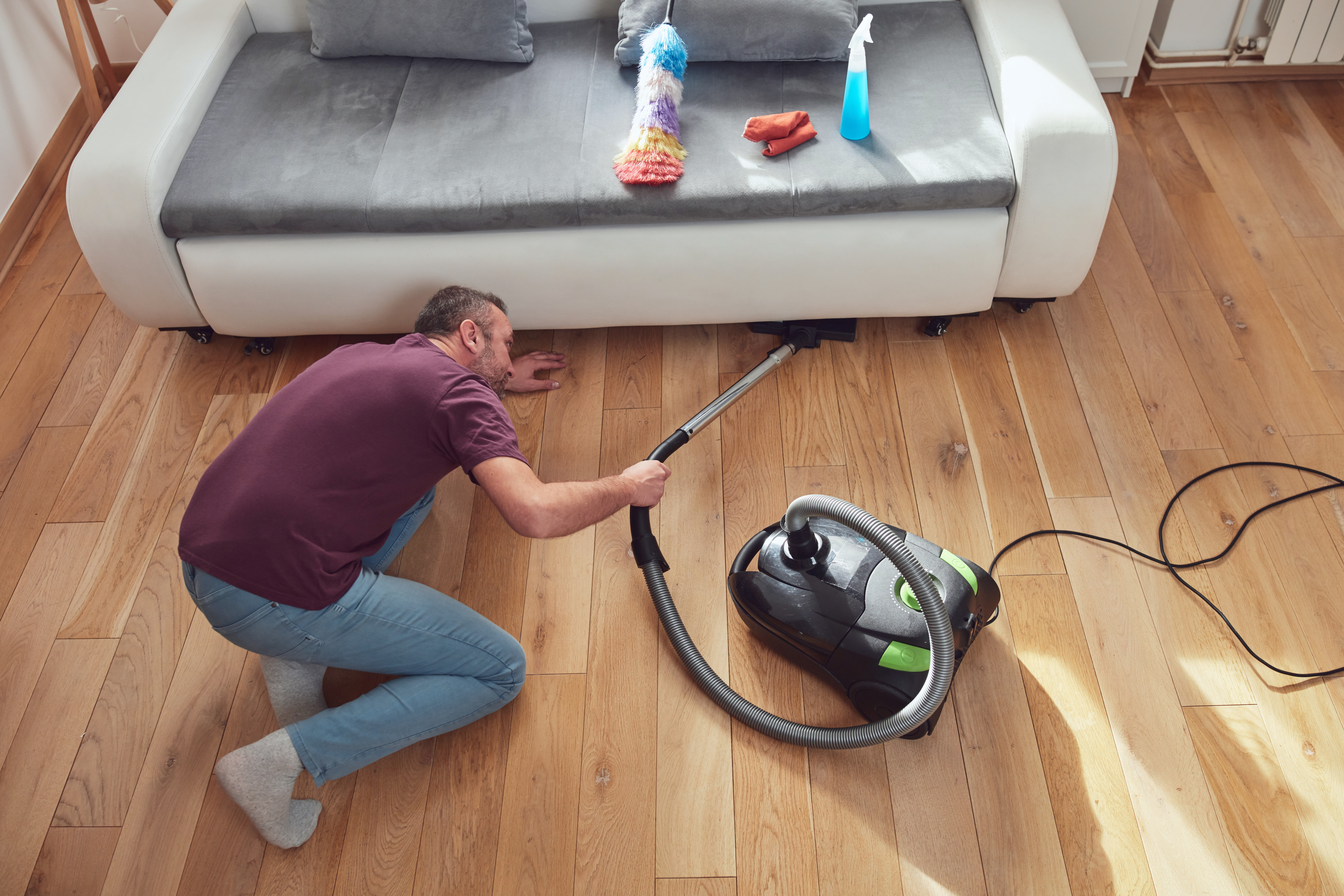
There are many types of mites that may infest your home. Learn how to get rid of mites and tips for preventing them from returning.